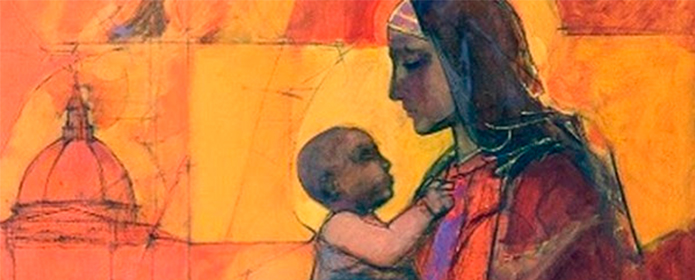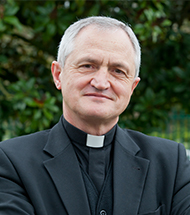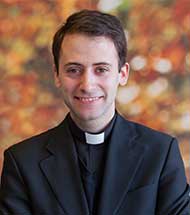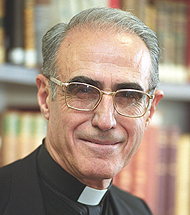"The Bible has been for Western culture the ideal horizon to which the human research has been directed as a point of reference letter for centuries."
Cardinal Gianfranco Ravasi closed the 36th International Theology Symposium of the University of Navarra, which was attended by a hundred experts.
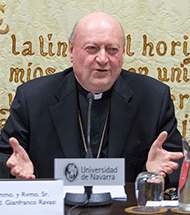
"The Bible has been for Western culture the artistic, literary, ethical and ideal horizon to which the human research has been directed for centuries as a point of reference letter". lecture This is what Cardinal Gianfranco Ravasi declared at the University of Navarra, during the closing session of the XXXVI International Symposium of Theology. Focused on 'The Bible, language mother of today's world', the meeting brought together a hundred experts from different countries.
lecture degree scroll Cardinal Ravasi, president of the committee Pontifical Council for Culture, gave a talk on the importance of the atrium, an open space between the sacred area of the temple and the profane place, to establish a neutral meeting between the two worlds, the religious and the secular.
He pointed out that "the Bible, in its totality of divine word and human words, enters the atrium of society, history and culture as a presence that can fertilize the arid lands of humanity and that, at the same time, can be a sword that wounds superficiality and indifference, making hearts and minds tremble, demanding to be listened to".
In his speech, he emphasized the essential importance of the Bible in the concrete manifestation of beauty in the history of Western culture. To this end, he recalled the words of St. John Damascene, who encouraged non-believers, desirous of knowing the Christian faith, not to engage in a theological discussion , but to enter a church and contemplate the paintings and statues present.
He also recalled the affirmations of St. John Paul II in his famous Letter to Artists at Easter 1999, in which he said that the biblical text has inspired the imagination of painters, poets, musicians, theater and cinema people: "The Bible has become image, music or poetry countless times, evoking with the language of art the mystery of the Word made flesh".
Eight presentations and two round tablesTwo round tables and eight lectures were held over the course of three conference . The first of the round tables focused on "The Bible in popular culture". Speakers were Alfonso Méndiz (International University of Catalonia); Guadalupe Seijas (Complutense University of Madrid); and Miguel Ángel Berlanga (University of Granada).
The second roundtable dealt with "The Bible in the configuration of society. Speakers included Professor Sergio Tapia Velasco (Pontifical University of the Holy Cross, Rome); Professor Fernando Simón (University of Navarra); and Professor Ricardo Calleja (IESE Business School).
The lectures were given at position by Luis Galván (University of Navarra); Ruth Fine (Hebrew University of Jerusalem); Diego Pérez Gondar (University of Navarra); Nicolás Álvarez de las Asturias (San Dámaso University of Madrid); Agustín González Enciso (University of Navarra); Armand Puig i Tàrrech (Ateneu Universitari Sant Pacià); Ricardo Piñero (University of Navarra); and Cardinal Gianfranco Ravasi, president of the Pontifical Council for Culture committee , who closed the Symposium.

